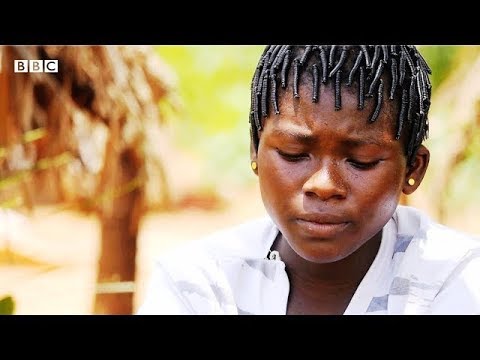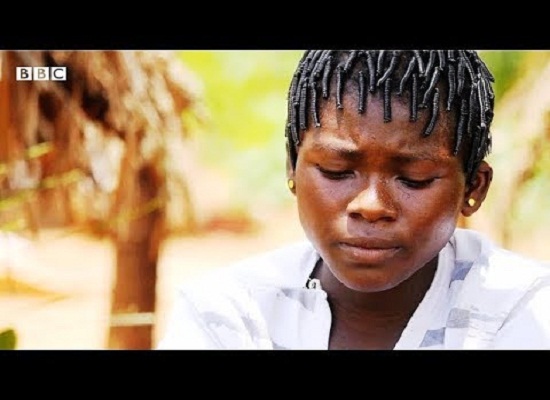
A BBC documentary has uncovered a community in Nigeria, Becheve tribe in Cross River State, where children are sold off to repay debts.
Since the BBC broke the news on Monday the plight of the innocent children have been brought to the fore.
“Children are sold to men as old as 90 to settle debts or as a form of payment,” the BBC report noted.
“Through a tradition called “money marriage”, some young girls are being used as currency in a type of modern slavery among southern Nigeria’s Becheve community.”“They are sold out to clear debts owed by a family relation or debts owed even before her birth. The ‘Money Wife’ most sadly does not benefit from the ‘Money Marriage.”
The Becheve tribe in Obanliku is made up of 17 tribes who practice an age long tradition where young girls are in the exchange of items including food items or debt settlement are given out in “Money Marriage.
Obanliku, a local government situated in North region of Cross River is eight hours drive from Calabar the State Capital.
According to a Channels TV report published in March 2018, this practice is sadly carried out without the consent of the girls.
In a press release issued by international female rights advocacy platform, Girls not Brides, it was revealed that 65% of all cases of obstetric fistula occur in girls under the age of 18. The same report also revealed that ‘girls who give birth before the age of 15 are five times more likely to die in childbirth than girls in their 20s’’.
Out of the top 20 countries with the highest rates of child marriage across the globe, 17 are African countries, and Nigeria ranks at number 11. In Nigeria, child marriage has ancient cultural, religious and economic ties. It is believed that girls who marry after the age of 18 can become promiscuous, while other families give out their daughters to ‘escape poverty’.
According to a 2017 report by UNICEF, 43 per cent of Nigerian girls are married off before their 18th birthday, while 17 per cent are married before they turn 15.
The prevalence of child marriage in Nigeria varies from region to region, with figures as high as 76 per cent in the North Western region and as low as 10 per cent in the South Eastern region.
Watch the documentary below:
Video source: BBC
Video producers: Franklin Adegbie, Stephanie Hegarty and Mayeni Jones
Additional reports culled from Channels TV




